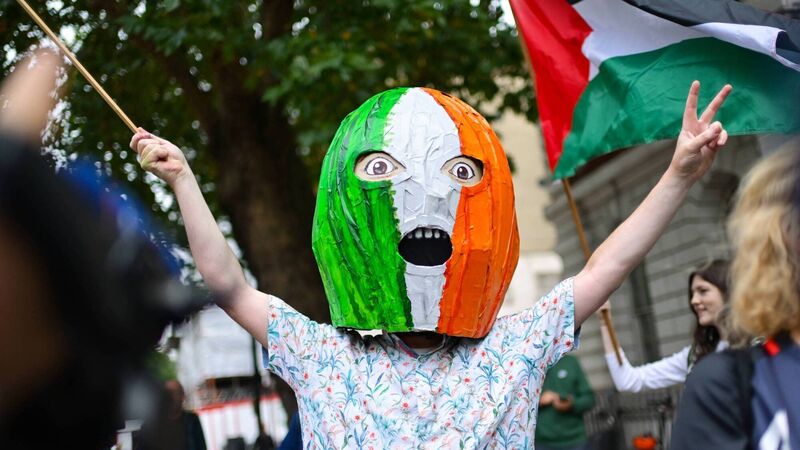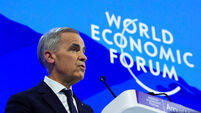'Over the top' police precautions as protestors gather to support Kneecap's Liam Óg

Hundreds gathered to support Liam Óg Ó hAnnaidh, who performs under the stage name Mo Chara with rap trio Kneecap, as he entered Westminster Magistrates’ Court in London on terrorism charges. Picture: Jordan Peck/Getty
A feeling that British authorities are policing pro-Palestine protests more strictly than others had been fomenting amongst some Irish in London before Wednesday's protest in support of Kneecap.
Hundreds gathered to support Liam Óg Ó hAnnaidh, who performs under the stage name Mo Chara with rap trio Kneecap, as he entered Westminster Magistrates’ Court in London on terrorism charges.













